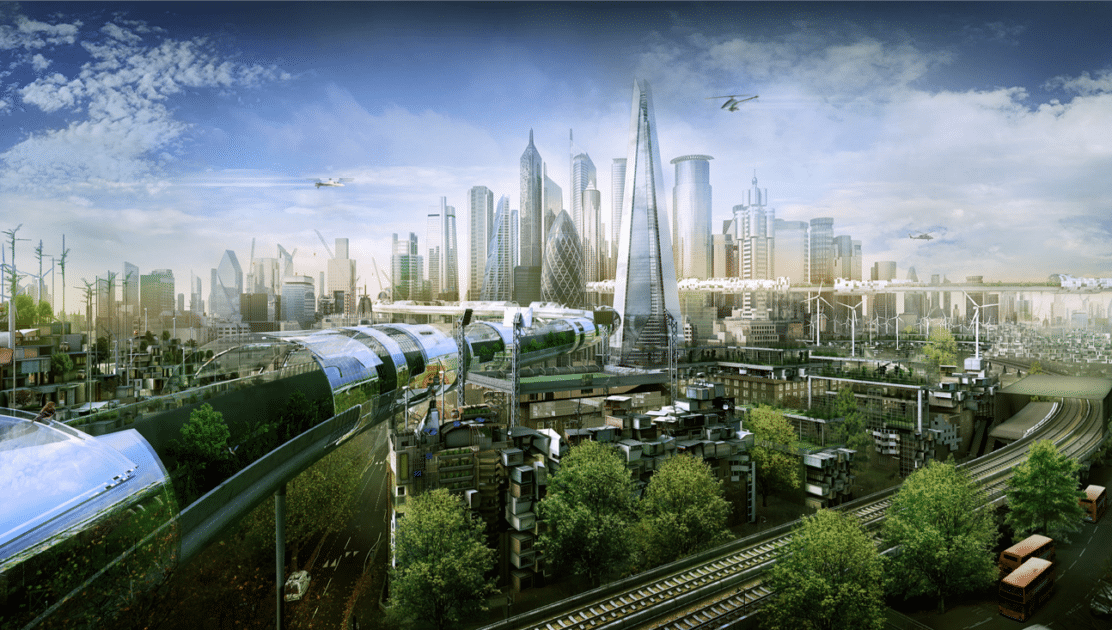The Future of Human Civilization: Exploring Possibilities and Challenges
 Join FREE Demo Classes - Now!!!
Join FREE Demo Classes - Now!!!
The future of human civilization is a topic that inspires both optimism and concern. As we progress through the 21st century, we face unprecedented challenges and opportunities that will shape the course of our collective destiny. From technological advancements to environmental stewardship and societal changes, let's delve into the potential trajectories and actions necessary for a sustainable and thriving human civilization.
Exploring Possibilities and Challenges
Technological Advancements
1. Artificial Intelligence (AI) and Automation:
AI and automation are poised to transform industries, economies, and daily life:
- Workforce Changes: Automation will replace some jobs while creating new ones, necessitating a shift in workforce skills and education.
- Enhanced Decision-Making: AI can assist in complex decision-making processes in healthcare, finance, and governance, leading to more efficient and effective outcomes.
- Ethical Considerations: The development and deployment of AI must address ethical concerns, including privacy, bias, and the impact on employment.
2. Biotechnology and Medicine:
Advances in biotechnology and medicine promise to revolutionize healthcare:
- Gene Editing: Techniques like CRISPR can potentially cure genetic diseases and improve human health, though they raise ethical questions.
- Personalized Medicine: Tailoring treatments to individual genetic profiles can enhance the effectiveness of medical interventions.
- Longevity Research: Efforts to extend human lifespan and improve quality of life in old age are progressing, potentially reshaping demographics and social structures.
Environmental Sustainability
1. Climate Action:
Combating climate change is crucial for the future of human civilization:
- Renewable Energy Transition: Shifting to renewable energy sources is essential to reduce greenhouse gas emissions and mitigate climate change impacts.
- Sustainable Practices: Adopting sustainable agricultural, industrial, and consumption practices will help preserve ecosystems and resources.
- Global Cooperation: International collaboration on climate policies and innovations is vital to address this global challenge effectively.
2. Biodiversity and Conservation:
Protecting biodiversity is key to maintaining ecological balance and human well-being:
- Conservation Efforts: Expanding protected areas, restoring habitats, and curbing poaching and deforestation are critical steps.
- Sustainable Development: Integrating biodiversity considerations into development planning can ensure that economic growth does not come at the expense of the environment.
Societal Evolution
1. Globalization and Cultural Exchange:
The interconnectedness of the world will continue to influence cultural and societal evolution:
- Cultural Exchange: Increased interaction between cultures can foster greater understanding and cooperation but may also lead to cultural homogenization and conflicts.
- Economic Integration: Global trade and investment can drive economic growth but need to be managed to ensure equitable benefits and address inequalities.
2. Governance and Democracy:
Evolving governance models will play a critical role in addressing future challenges:
- Participatory Governance: Increasing public participation in governance through digital platforms can enhance transparency and accountability.
- Global Governance: Strengthening international institutions and frameworks is essential to manage transnational issues such as climate change, pandemics, and cyber threats.
- Resilience to Populism: Democracies must build resilience against populist movements that exploit economic and social discontent.
Ethical and Philosophical Considerations
1. Human Rights and Equality:
Advancing human rights and equality will remain central to a just and prosperous civilization:
- Social Justice Movements: Continued efforts to address racial, gender, and economic inequalities are crucial for social cohesion and progress.
- Inclusive Policies: Governments and organizations must implement policies that promote inclusivity and protect the rights of all individuals.
2. Ethical Use of Technology:
As technology becomes more integrated into daily life, ethical considerations will be paramount:
- Data Privacy: Ensuring the privacy and security of personal data in the digital age is critical.
- AI Ethics: Developing frameworks to guide the ethical use of AI and prevent misuse or harm.
- Biotechnology Ethics: Balancing the potential benefits of biotechnology with ethical concerns around genetic manipulation and bioprivacy.
The Role of Individuals and Communities
Every individual and community has a part to play in shaping the future:
- Education and Lifelong Learning: Emphasizing continuous education and skill development to adapt to changing technological and economic landscapes.
- Civic Engagement: Encouraging active participation in local and global governance to influence positive change.
- Sustainable Living: Adopting sustainable lifestyles and supporting policies and practices that protect the environment and promote social justice.
Conclusion
The future of human civilization is a complex tapestry woven from technological innovations, environmental stewardship, societal evolution, and ethical considerations. While the challenges are formidable, the opportunities for progress and positive change are immense. By embracing a holistic and forward-thinking approach, we can navigate the uncertainties and build a resilient, equitable, and sustainable future for all. The journey ahead requires collective effort, wisdom, and a shared vision of a better world.
Tags : The Future of Human Civilization, Exploring Possibilities and Challenges,Future of human civilization,Technological advancements,Artificial intelligence (AI),Automation,BiotechnologySustainable development,Climate change,Globalization,Renewable energy,Environmental sustainability,Economic integration,Societal evolution,Governance models,Human rights,Global cooperation,Ethical considerations,Biodiversity conservation,Climate action,Personalized medicine,Longevity research,Social justice,Workforce changes,Smart citiesDigital transformation,Future of work,Cultural exchange,Ethical technology,Inclusive policies,Civic engagement,Education and lifelong learning

